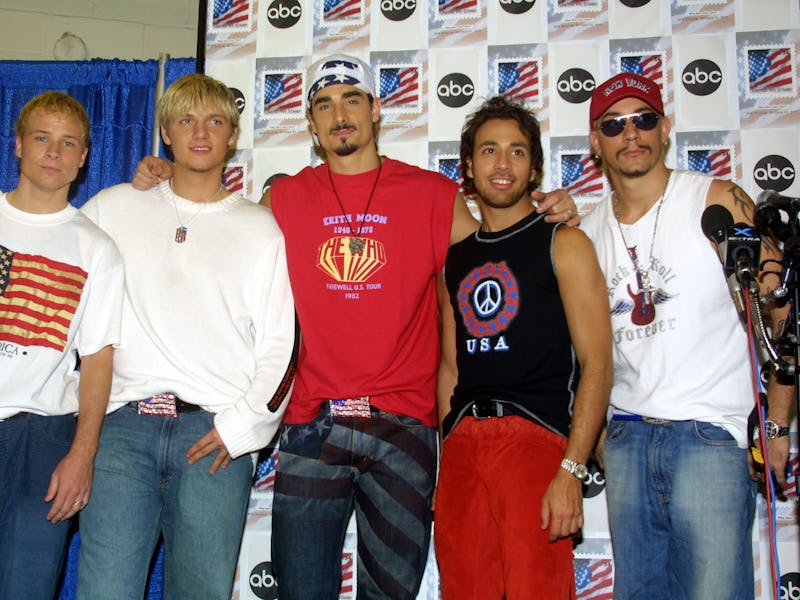Trump Mimics The Backstreet Boys Because He Knows We Want It That Way

Seemingly larger-than-life presidential candidate Donald Trump has a bit of a Backstreet Boys problem. First the iconic boy band asked him to quit playing games — er, quit playing their music at his rallies. Now Trump has been called out by The Huffington Post for spitting out rhetoric that sounds less like political policy and more like a Nick Carter power ballad — an accusation that unexpectedly revealed his excellent powers of psychological manipulation.
As it turns out, comforting America like you’re Howie D. isn’t necessarily a bad thing if your goal is to get ahead. In times of economic and social unrest, studies show we simply want it that way. Trump knows his supporters perceive themselves to be disenfranchised, so he woos them with the comforting predictability of pop.
Here’s the Trump statement in question, uttered during the second Presidential debate during a rant about Muslim-Americans: “People coming into our country — we have no idea who they are, where they are from, what their feelings about our country are.”
It sounds just like a line from the 1997 Backstreet Boys hit “As Long as You Love Me”: “I don’t care who you are / Where you’re from / What you did / As long as you love me.”
There’s a similarity between the two that even former Trump supporter Aaron Carter likely couldn’t deny. And if you’re on Donald Trump’s campaign team, you’re hoping that people subconsciously realize that similarity because it’ll make them feel more at ease with the potential future candidate.
In an analysis of Billboard No. 1 songs from 1955 to 2003, researchers found that the songs that were the most popular during threatening social and economic times were comforting, romantic, and slow — just like Backstreet Boys songs. They discovered this by analyzing three factors: The Billboard songs themselves, survey results from each year that considered measures of social and economic happiness, and song content analysis from 49 volunteer subjects. These volunteers judged how meaningful, comforting, and romantic the songs were. The results confirmed what the researchers hypothesized from the start — when things get rough, people want the warm blanket of romantic pop ballads.
“We predicted that songs with more meaningful content would be popular during threatening conditions,” the researchers write in The Journal of Language and Social Psychology. “Not only was this relationship significant, but we also found that poor socioeconomic conditions were correlated with songs that were longer, more comforting, and slower.”
These trends exist for a variety of reasons. Pop songs, for one thing, are generally soothing to people; their predicability comforts the brain. Thinking about love releases dopamine, and emotional music acts as a cognitive motor arousal. Starting from infancy, listening to soft singing helps diminish distress.
When Trump mimics the lines from a love ballad, he’s making use of our psychological predisposition to find comfort in those words. Too bad for him it looks like come November, in the words of another boy band, he’ll have to say “bye bye bye” to becoming president.